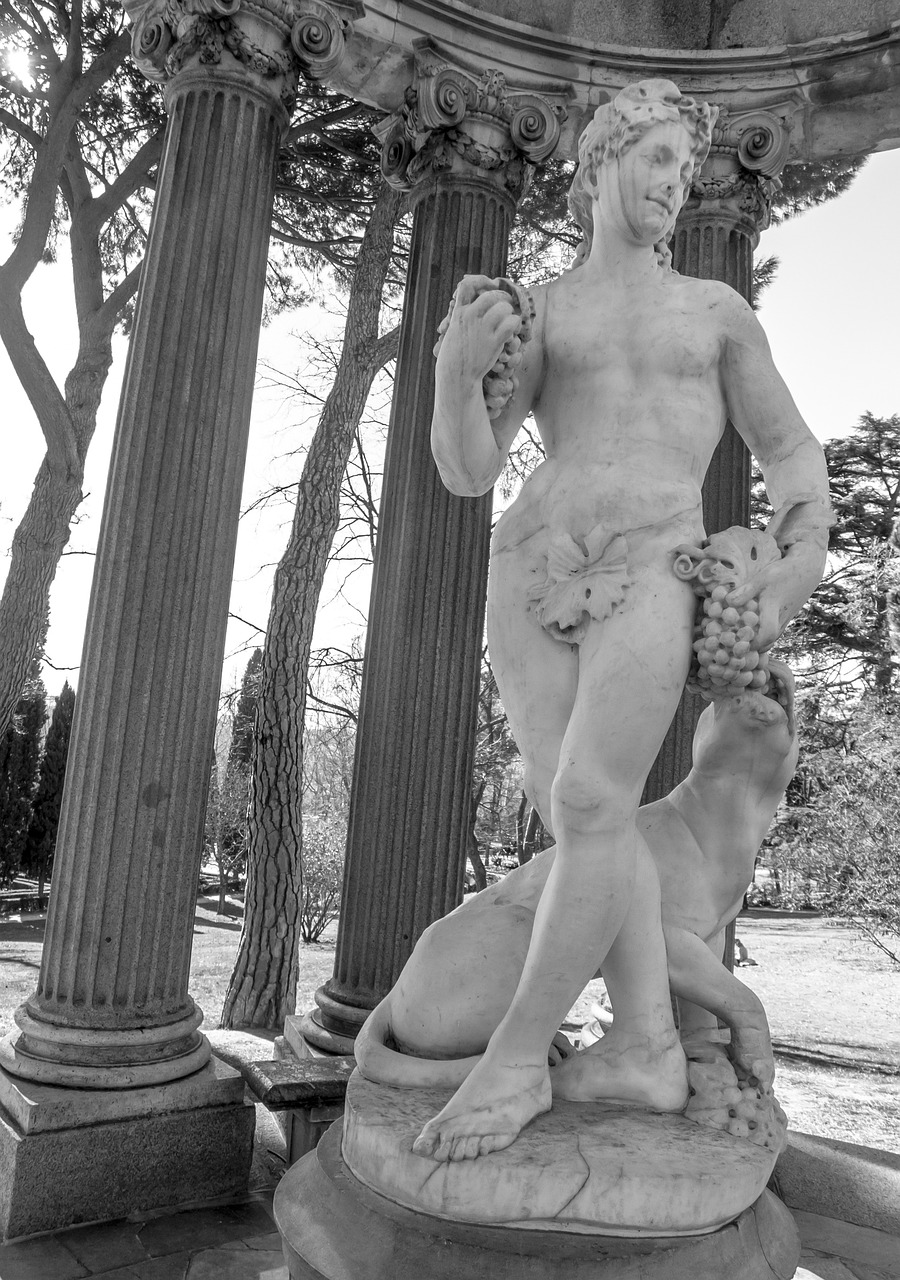Bacchus: The Divine Icon of Wine and Revelry
An Overview of Bacchus
Bacchus, revered as the god of wine, fertility, and festivity, has enthralled people through generations. Who is this captivating deity, and what historical transformations has his myth undergone? Let us explore the realm of Bacchus, shedding light on the intriguing tales that surround this ancient figure.
Bacchus in Roman Beliefs
Within Roman mythology, Bacchus is primarily recognized for his associations with wine, agriculture, and fertility. He also acted as the patron of the arts and a guardian of theatrical performances. His festivals, known as the Bacchanalia, were celebrated with enthusiasm and often featured spirited and euphoric festivities.
Bacchus in Greek Tradition
Dionysus: The Greek Archetype
Bacchus’ origins can be traced back to Dionysus, the Greek god of wine and fertility, with whom he shares numerous attributes. Bacchus is regarded as the Roman reinterpretation of Dionysus.
The Birth and Upbringing of Dionysus
Dionysus was born to Zeus, the chief deity, and Semele, a mortal princess. His arrival into the world was marked by miraculous events, including his mother’s heartbreaking demise and his subsequent rescue from her womb by his divine father. Raised by nymphs on Mount Nysa, Dionysus became adept in the art of winemaking.
The Duality of Wine and Fertility
Dionysus was celebrated not only as the god of wine but also as an emblem of fertility, growth, and the creative arts. He embodied joy, inspiration, and ecstasy alongside chaos and destruction—an intriguing duality that rendered him a profound character in Greek mythology.
Devotees and Rituals of Dionysus
Dionysus attracted fervent followers, including the Maenads, his female worshippers known for their wild, ecstatic rites, and the Satyrs, hybrid creatures that accompanied him on his escapades. His cult’s influence was evident across ancient Greece, where festivals often showcased theatrical productions, parades, and vigorous celebrations.
The Cult of Bacchus
Bacchanalia: Celebrations of Ecstasy
The Bacchanalia represented the Roman counterpart to the Greek Dionysian festivities. These exuberant events honoring Bacchus involved rampant drinking, dancing, and revelry. Initially, they were private affairs, but they eventually morphed into city-wide celebrations. Nonetheless, their infamous debauchery led to the Roman Senate suppressing these gatherings in 186 BCE due to fears of moral decay and political unrest.
The Expansion of Bacchus’ Worship
The veneration of Bacchus radiated across the Roman Empire, reaching Britain and North Africa. His widespread appeal likely stemmed from his association with wine, a fundamental beverage in the ancient Mediterranean, and his symbolism of liberation and self-expression.
Symbols and Representations
Thyrsus: A Sign of Divinity
One of the most prominent symbols related to Bacchus is the thyrsus—a staff adorned with a pinecone and often entwined with ivy or grapevines. This staff reflected the god’s bond with nature, fertility, and winemaking, carried by his followers during public rituals.
Grapevines and Ivy
Grapevines and ivy hold a deep connection to Bacchus, representing his sovereign control over vine cultivation and winemaking. Artistic portrayals frequently depict him adorned with a crown of ivy or grape leaves, which were also common in the drapery of his temples and sacred sites.
Maenads and Satyrs
The figures of Maenads and Satyrs, who remained loyal to Dionysus, significantly influenced art related to Bacchus. These companions were commonly illustrated in various art forms to convey the innate connection between the god and the fervor of ecstatic worship in nature.
Bacchus in Artistic Expression
Bacchus has been a revered subject in art and literature throughout history. From classical sculptures and mosaics to Renaissance-era paintings and contemporary poetry, the tales and imagery of this god have sparked creativity across many platforms. Renowned artists such as Caravaggio, Titian, and Rubens have crafted outstanding pieces that portray Bacchus and his followers, encapsulating the essence of the Bacchic spirit.
Conclusion
As the Roman god of wine, fertility, and celebration, Bacchus encompasses a rich and intricate history that spans many ages. Emerging from the character of the Greek Dionysus, he symbolizes liberty, individuality, and the transformative qualities of wine. His mythological legacy and imagery have imprinted themselves on the realms of art and literature, continuing to entice and inspire admirers to this day.



